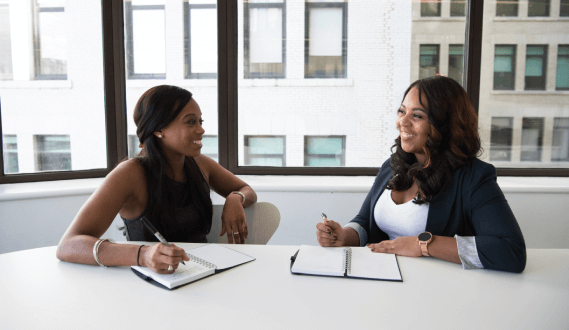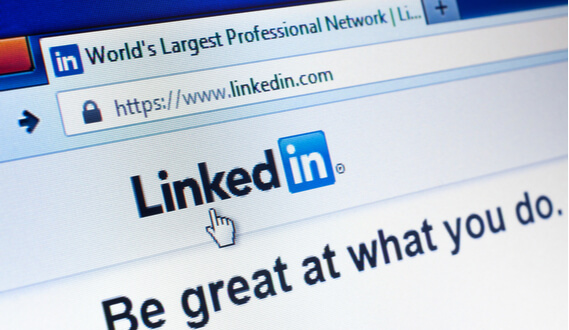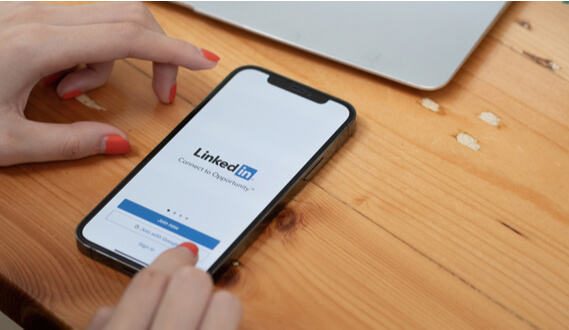Being prepared for an interview = bringing the right things with you!
You have an exciting job interview coming up, but don’t know what to bring (or what not to bring)? This article will provide insight into what to bring to a job interview so you can showcase your best self. And for those wondering what to bring to first job interview or what to bring to a part-time job interview – these tips will work for in-person interviews whether it’s a full-time, part-time, entry-level, C-level – or even if it’s your first or your 10th job interview.

What to Bring to a Job Interview
After you applied to the job and possibly aced the phone screen, it’s now time for the first round of interviewing so you can discuss your unique skills and identify your competence and interest level. There are several items you want to have with you to be prepared, confident, and reliable.
Hardcopies and documents required for a job interview
Should you bring your resume to an interview? Yes! While everything seems to be digital nowadays, it can never hurt to bring about five (5) copies of your resume written on resume quality paper, if possible. If you can, invest in a ream of resume paper with a weight around 32 lb. and 75–100% cotton content – about $8. Bringing a resume not only can help refresh your memory but also shows that you have prepared explicitly. Your interviewer(s) may want to have it in front of them during your conversation, or they may not want to be staring at their laptop, which can be clunky or in the way.
Other physical items to bring include:
- Business Cards (if applicable)
- Addresses, directions, emails or important names needed for the big interview day: Print or write these out. While you may think this information is easily housed in your phone – this may be the one day your phone dies.
- Portable Charger
- Notebook & Pens
- Reference List: How to bring references to a job interview? Along the same line of bringing a printed resume, you should print your reference list on quality resume paper and include their name, phone number and/or email address and most recent job title(s) and/or organizations if they approve you providing that information.
Should you bring examples of work to an interview? Definitely! It’s important to showcase your successes with printed visuals and examples of your work. Any creative publications or distributions such as logos, adverts, marketing collateral, printed magazine articles, authored books, etc. you can print out and bring with you in your interview folder.
Lastly, a common question asked relating to hardcopies is “should you bring a cover letter to an interview?” and my complicated answer to that is yes to be safe, but also – no – because you won’t need it. The cover letter is what helped you get this interview in the first place so no need for the interviewer to read it while interviewing you. I consider this the equivalent of going to the theater and bringing the playscript to read while watching the show live. Perhaps bringing a noted copy for yourself to review might be helpful, but you are not expected to hand in a hardcopy of your cover letter with the resume.
Business Items
You can never be too prepared and because you may not have the inside scoop on if your interviewer prefers printouts vs. digital, so you also want to bring your:
- Portfolio (if applicable)
- Flash/Thumb Drive
- Laptop: You may not need to even take it out of the bag, but if you’re asked to present, it cannot hurt to have it with you.
- Interview folder: It’s best to organize all your documents which can be stored in an undamaged bag, satchel or briefcase to carry these items.
Personal Items
While you may not bring these items into the physical building, it’s a good idea to keep them in your car, bag or purse in case of an emergency.
- Water: After a long interview with an hour+ of chatting, you don’t want a sore throat or to lose your voice. It’s also not ideal to be thirsty and have to ask where a water fountain is.
- Snack: Being hungry can cause a host of problems from unintentional anger to concentration issues to fainting to getting the shakes. Bring a small snack like a banana or a granola bar so if you do get hungry you can quickly have a snack which will help you learn, retain information, and just function better.
- Mints, Floss, or Breath Strips: Did you just drink coffee or eat a tuna sandwich? While bad breath would never be a reason to not hire someone, this type of distinction might end up being the main thing your interviewer remembers about you.
- Tide Stain Remover, Wipes, Comb, Tylenol: You never know if today will be the day you spill coffee on your shirt or have a headache. Mini emergency kits are super helpful.
- Cash or Change: Days before the actual interview, scout out the parking situation before you drive to your interview. If it’s metered only or card readers only or the lot is full – you need a backup plan.
- Weather-Conscious Clothing: Another tip I’ve learned through the years is to bring a sweater or wear an outfit that has layers that I can take off if needed. Some offices are freezing while others can be too hot for your comfort.
- Identification: Lastly, but perhaps most importantly – don’t forget your license, ID or passport. Some office buildings require this for you to even step into the door.
Research Notes
Can you bring notes to an interview? Absolutely. Many people feel like they will be perceived as unprepared or disheveled if you have notes and need to glance at them. That is an incorrect assumption. Nobody expects you to remember everything and you don’t want to forget an important topic or question, so bringing notes, questions to ask, and research points shows initiative, organization, and reliability.
Companies want to hire someone who respects their mission/vision and would be proud to work for them. More in-depth research is needed (found through their website, recent headlines, press releases, Glassdoor, LinkedIn, and even Twitter and TikTok) to show them that you care about their job opening pain points, company products, and who their competitors are. You can bring notes with points like the following:
- Ask questions that show your interest in the interviewer and company such as:
– How would you describe your ideal candidate for this position?
– How did your company handle Covid?
– How would you improve things if given the chance?
– Do you have any questions or concerns about my candidacy at this point?
- Write down any new trends and industry updates
- Understand the challenges your industry/target company is facing
- Research the interviewer to get a sense of their accomplishments and character. You may even discover you both foster animals or went to the same high school – you never know!
Powerful Language Synonyms
An interview is a social conversation between two people. You are essentially “selling your personal brand” and the worst thing that you can do is sound unsure of yourself.
How do you sound impressive? Practice clarifying your reason you want this job and the accomplishments in your past that prepare you for this type of role.
For example, replace typical language with strong language like:
- Created à Pioneered
- Made à Assembled
- Used à Leveraged
- Bettered à Enhanced
- Helped à Aided
- Assisted à Supported
What NOT to Bring to an Interview
This list whittles down to bringing items that would cause a distraction:
- Gum: Chewing gum can be very diverting to the interviewer and make you seem un-engaged.
- Food: Unless this is an agreed-upon business meal, you should never bring any food with you. It is considered impolite and unexpected.
- Wearing too fancy of clothes or too casual clothes: Ask your interviewer beforehand the type of dress code and environment to expect so you know to wear either:
– Formal
– Business Casual
– Smart Casual
– Business Professional
- Competitor Products: It may not be intentional but be aware of the products you use daily. If you are interviewing with Dunkin Donuts, it’s best to not bring your Starbucks mug!
So, what is the most important job search document? Your resume! It is the foundation of everything in your job search, from your contact information to personal branding to applying to networking and interviewing. It provides every piece of information a reader would need to know while showcasing your impressive candidacy and ensuring you have the correct keywords so you can be digitally searchable.
And don’t forget about your hidden power: Your smile. Being friendly, kind, and approachable is more important than anything else and can make you or break you.


